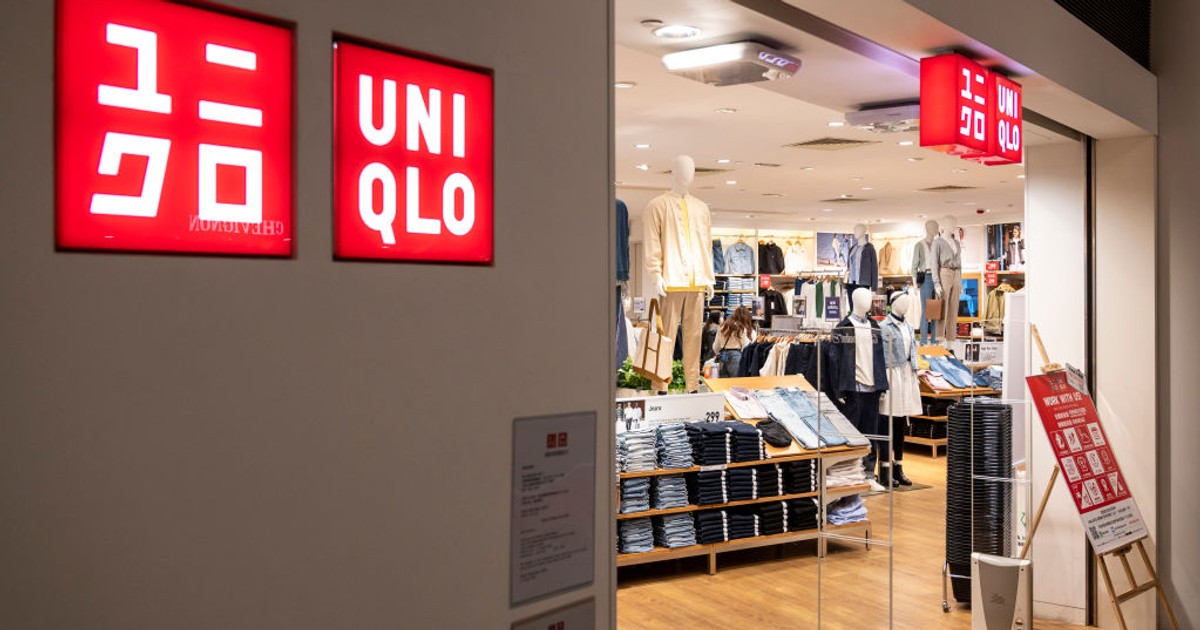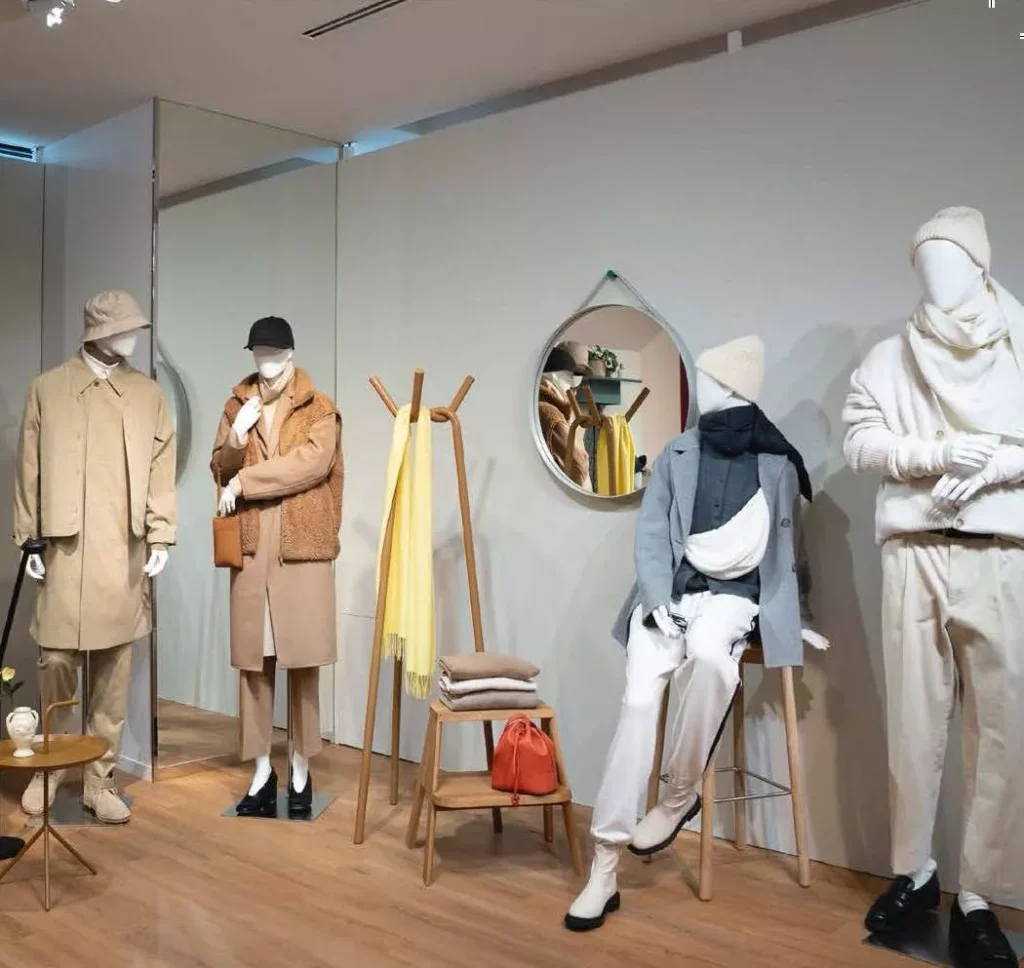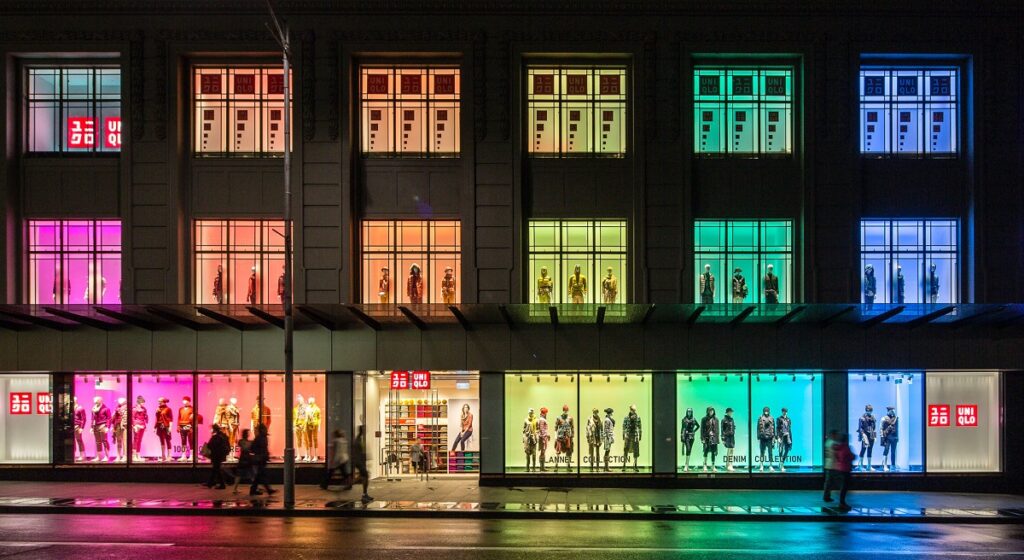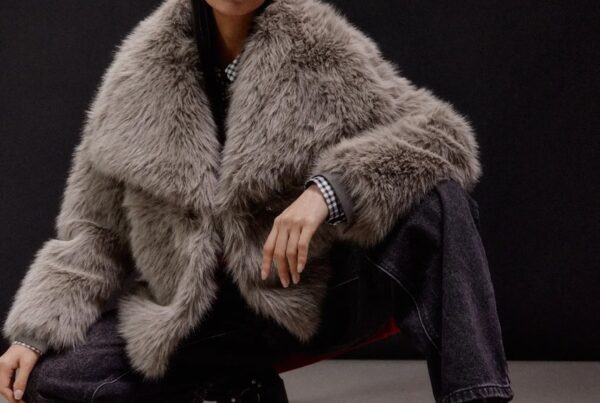In today’s retail landscape, brands face intense competition and changing consumer expectations, particularly in the realms of sustainability and innovation. This article examines how Uniqlo, a leading global apparel retailer, effectively addresses these challenges through data-driven design, a seamless omnichannel experience, and a commitment to sustainability.
By exploring Uniqlo’s strategic approaches in these areas, readers will gain insights into how the brand not only enhances customer loyalty but also positions itself for sustainable growth in a rapidly evolving market. This examination provides valuable lessons for businesses seeking to adapt and thrive amidst modern consumer demands.
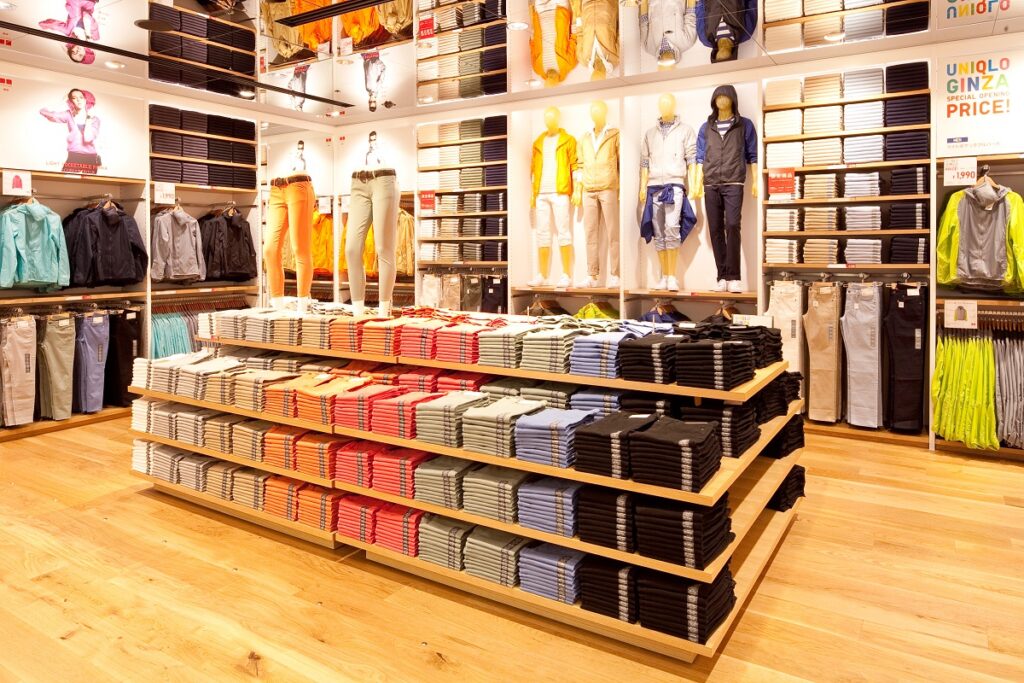
Innovation as a Driving Force in Uniqlo’s Growth
Uniqlo, the flagship brand of Fast Retailing Co., Ltd., has transformed the global fashion landscape through its unwavering commitment to innovation. As a leader in the affordable apparel market, Uniqlo’s growth trajectory has been propelled by several groundbreaking strategies that distinguish it from its competitors. This article explores how innovation serves as the cornerstone of Uniqlo’s success, affecting everything from product development to supply chain efficiency.
Technological Advancements in Fabric Development
At the heart of Uniqlo’s innovative spirit is its investment in fabric technology. The brand continually explores new materials that combine function, style, and comfort to create versatile clothing. For example, its proprietary HEATTECH fabric is a testament to this commitment. Introduced initially in 2003, HEATTECH generates heat from the wearer’s body while remaining lightweight and breathable, making it ideal for colder climates. By prioritizing performance through fabric innovation, Uniqlo not only enhances customer satisfaction but also sets trends in the fast fashion industry.
Data-Driven Design and Production
Uniqlo employs data-driven approaches in everything from design to inventory management. Through the utilization of advanced analytics, the company can predict consumer trends, ensuring that popular products are readily available in stores. This approach minimizes excess inventory and waste, contributing to a more sustainable business model. By analyzing customer feedback, sales data, and shopping patterns, Uniqlo incorporates genuine consumer insights into its design process, resulting in clothing lines that resonate with their target audience.
Seamless Omnichannel Experience
In an era defined by digital transformation, Uniqlo has embraced technology to create a seamless omnichannel shopping experience. This includes integrating its online and offline platforms, enabling customers to transition effortlessly between browsing, purchasing, and returning items. For instance, the brand’s mobile app allows customers to check product availability, make purchases, and even access exclusive promotions. This innovation has not only improved customer engagement but has also streamlined operations, proving essential for growth in a competitive retail environment.
Commitment to Sustainability Through Innovation
Uniqlo’s innovative strategies extend beyond product and process improvements to include a profound commitment to sustainability. Understanding the environmental impact of the fashion industry, Uniqlo has adopted various initiatives to reduce its carbon footprint. Projects like the Re.Uniqlo program, which encourages customers to recycle their old clothes, illustrate how innovation can drive both profit and planet-friendly practices. This forward-thinking attitude not only aligns with global sustainability goals but also attracts a conscientious consumer base invested in ethical fashion.
Collaboration with Innovative Partners
Another hallmark of Uniqlo’s innovative approach is its strategic partnerships with external collaborators. By engaging in collaborations with renowned designers, artists, and brands, Uniqlo infuses fresh ideas and styles into its collections. These partnerships have resulted in unique collections that appeal to a broad spectrum of consumers, thereby expanding market reach and enhancing brand prestige. Such initiatives not only spotlight Uniqlo’s creative side but also serve as a reminder that innovation often thrives through collaboration.
Through these multifaceted strategies, innovation stands out as the driving force behind Uniqlo’s growth. As the company navigates an increasingly competitive global market, its focus on cutting-edge technology, consumer-centric design, and sustainable practices positions it for sustained success. In the next section, we will explore how Uniqlo’s simplicity in design has fostered unwavering customer loyalty.
Simplicity in Design Leading to Customer Loyalty
The retail landscape is a crowded arena where brands continuously vie for consumer attention. In such a competitive market, Uniqlo stands out, primarily due to its commitment to simplicity in design. This approach not only enhances the shopping experience but also fosters a deep sense of customer loyalty. In this section, we will explore how the elements of simplicity contribute to Uniqlo’s enduring connection with its customers, the psychological impact of straightforward designs, and the overall brand philosophy that champions minimalism.
The Philosophy of Simplicity
Uniqlo’s design ethos is rooted in the philosophy that “less is more.” By focusing on clean lines, basic colors, and functional clothing, Uniqlo appeals to consumers who appreciate streamlined aesthetics. This commitment to simplicity is not just a design choice; it reflects the brand’s understanding of its target audience. Modern consumers value versatility and functionality in their wardrobe choices. Uniqlo’s offerings often include:
- Timeless Pieces: Items that do not conform to fleeting trends but remain relevant year after year.
- Wardrobe Essentials: Basic clothing that serves as building blocks for any outfit, maximizing versatility.
- Functional Design: Features like pockets, breathable materials, and easy-care fabrics that prioritize user convenience.
The Psychological Appeal of Simplicity
Simplicity in design also plays a significant role in consumer psychology. Research has shown that consumers are drawn to products that boast a simple, uncluttered design as it often corresponds with easier decision-making processes. Uniqlo’s uncomplicated shopping experience—whether online or in-store—reduces cognitive overload, resulting in positive shopping encounters. This has several implications for customer loyalty:
- Increased Satisfaction: A streamlined and intuitive shopping process enhances overall customer satisfaction, making shoppers more likely to return.
- Brand Recall: Simple designs and clear brand messaging help consumers remember Uniqlo more easily, fostering brand loyalty.
- Emotional Connection: Customers often associate simplicity with clarity and trust, which fosters an emotional bond between them and the brand.
Creating a Community of Loyal Customers
Uniqlo’s emphasis on simplicity extends beyond its product design; it permeates its marketing strategies and customer engagement initiatives. The brand actively cultivates a community by encouraging feedback and fostering communication with its audience. This relationship-building strategy not only enhances customer loyalty but also aligns with the values of transparency and authenticity:
- Inclusive Marketing: Uniqlo showcases diverse models and real people in its campaigns, making customers feel represented and valued.
- Loyalty Programs: Initiatives that reward returning customers encourage repeated engagement and deepen their loyalty.
A Sustainable Approach to Simplicity
In recent years, there has been a growing demand for sustainable fashion, and Uniqlo has responded in alignment with its simplicity-first philosophy. By focusing on quality over quantity, the brand encourages consumers to invest in enduring pieces. This not only satisfies the consumer’s desire for eco-conscious choices but also reinforces the loyalty of customers who value sustainability:
- Quality Materials: Uniqlo sources high-quality fabrics aimed at durability, which ensures that customers are satisfied over the long run.
- Recycling Initiatives: Programs that allow customers to recycle their old garments foster deeper connections with the brand based on shared values of sustainability.
In conclusion, Uniqlo’s commitment to simplicity in design is not merely about aesthetics; it integrates a multifaceted approach that drives customer loyalty. With a keen understanding of consumer psychology, stellar community engagement, and sustainable practices, Uniqlo provides invaluable lessons for brands looking to cultivate lasting relationships with their customers. The simplicity of their design serves as a powerful catalyst in the fashion retail market, creating a loyal customer base that is likely to support the brand over time.
Sustainable Practices Shaping Future Fashion Trends
As consumers increasingly prioritize ethical consumption, the fashion industry is undergoing a profound transformation driven by sustainability. This evolving landscape is not just a trend; it is reshaping the very fabric of fashion brands and their operations. Sustainable practices are becoming pivotal not only for brand reputation but also for long-term viability in a competitive market.
The Rise of Eco-Friendly Materials
One of the foundational shifts in sustainable fashion is the adoption of eco-friendly materials. Brands are now prioritizing the use of sustainable fibers, such as organic cotton, recycled polyester, and innovative textiles made from waste products. This shift offers several benefits:
- Reduced Environmental Impact: Sustainable materials typically require less water and energy to produce, significantly decreasing the carbon footprint associated with garment manufacturing.
- Consumer Demand for Transparency: As consumers become more informed, they seek brands that disclose their sourcing practices, fostering trust and loyalty.
- Innovation in Textile Development: The development of bio-fabricated materials and circular textiles is creating new possibilities for reducing waste, setting a precedent for future fashion manufacturing.
Ethical Production Practices
In parallel with material innovation, fashion brands are increasingly focusing on ethical production practices. This involves a comprehensive approach to labor rights, environmental stewardship, and community engagement. Key areas of focus include:
- Fair Labor Standards: Brands are ensuring their manufacturing partners comply with fair labor practices, guaranteeing safe working conditions and equitable wages for garment workers.
- Local Sourcing: By sourcing materials and labor locally, companies can reduce transportation emissions while supporting local economies.
- Waste Reduction Initiatives: Implementing zero-waste production techniques and recycling initiatives can minimize the amount of textile waste generated during the manufacturing process.
Consumer Education and Engagement
To foster a culture of sustainability, it is crucial for brands to engage consumers in their efforts. Educational campaigns that highlight the importance of sustainable practices, paired with transparent communication regarding the impact of fashion on the environment, can encourage conscious shopping behaviors. Effective strategies include:
- Storytelling: Brands that share authentic stories about their sustainable journeys are more likely to connect emotionally with their audience.
- Collaboration with Influencers: Partnering with eco-conscious influencers can amplify the message of sustainability and reach a broader audience.
- Interactive Platforms: Utilizing social media and online forums can promote discussions about sustainable fashion, allowing consumers to share experiences and tips.
The Future of Circular Fashion
Circular fashion, which emphasizes recycling and reuse over traditional linear consumption models, is gaining traction as a cornerstone of sustainable practices. The concept challenges the throwaway culture associated with fast fashion and encourages a focus on longevity and responsibility. Strategies in circular fashion include:
- Take-Back Programs: Many brands are establishing programs that allow consumers to return used clothing for recycling or refurbishment, thus extending the life cycle of garments.
- Design for Disassembly: Creating products that are designed to be easily taken apart and recycled can significantly reduce waste.
- Collaboration within the Industry: Fashion brands are increasingly collaborating with organizations and other brands to share best practices and innovations aimed at promoting circularity in fashion.
In conclusion, sustainable practices are not just a fleeting trend; they are essential to the future of fashion. By integrating eco-friendly materials, ethical production practices, consumer engagement, and circularity into their business models, brands can stay ahead of the competition while contributing positively to the planet. As we turn to the next section, it’s important to explore how these sustainable practices are influencing global expansion strategies and reshaping the broader retail landscape.
Global Expansion Strategies Reshaping Retail Landscape
In the rapidly evolving world of retail, global expansion has become a pivotal strategy for brands seeking sustainable growth and enhanced market presence. As international markets become increasingly interconnected, retail giants are experimenting with varied approaches to captivate diverse customer bases. This section delves into the innovative global expansion strategies that are reshaping the retail landscape, focusing on Uniqlo’s journey and the implications of these strategies on the overall sector.
Understanding Global Market Dynamics
Before brands can effectively expand internationally, they must first grasp the unique dynamics of each target market. Factors such as cultural preferences, economic conditions, and regulatory environments play significant roles in shaping brand strategies. For instance, companies like Uniqlo have succeeded by adapting their offerings to meet local tastes while retaining their core principles of simplicity and functionality.
Localized Approach to Product Offerings
One key strategy in global expansion is a localized approach to product offerings. Retailers are no longer relying solely on a one-size-fits-all method; instead, they are developing products that resonate with local consumers. For Uniqlo, this means tailoring designs and marketing messages to reflect the cultural nuances of each marketplace.
- Regional Collaborations: Uniqlo often collaborates with local designers and influencers to create exclusive collections that appeal directly to the regional demographic.
- Seasonal Adaptations: Understanding local climatic conditions allows brands to adjust their product lines accordingly—offering heavier clothing in colder regions while promoting light and breathable fabrics in warmer climates.
Strategic Store Placement and Omnichannel Integration
The choice of retail locations can drastically influence the success of expansion efforts. By strategically placing flagship stores in affluent urban areas and high-traffic locations, brands can enhance visibility and accessibility. Uniqlo, for instance, often selects premium spots for its flagship outlets while complementing these physical locations with robust online platforms.
This omnichannel integration is crucial in today’s digital-first world. Shoppers demand seamless interactions across platforms, and successful retailers provide just that through:
- Interactive In-Store Experiences: By incorporating technology such as virtual try-on stations, stores engage customers in innovative ways.
- Online-to-Offline (O2O) Strategies: Allowing customers to order online and pick up in-store enhances convenience and drives foot traffic.
Investment in Technology and Supply Chain Improvements
In the age of advanced technology, retailers focusing on global expansion cannot overlook the importance of investing in technology. This involves enhancing supply chain logistics and utilizing data analytics to forecast trends and customer preferences. Uniqlo has been a frontrunner in adopting technology to streamline operations, resulting in:
- Enhanced Inventory Management: Utilizing AI and machine learning helps predict which items will sell best in specific markets, minimizing overstock and stockouts.
- Data-Driven Insights: Engaging in comprehensive market analysis retains customer loyalty and tailors marketing strategies according to consumer preferences.
Building a Sustainable and Ethical Brand Image
As global consciousness around sustainability increases, brands expanding internationally are recognizing the necessity of adopting sustainable practices. Uniqlo has taken substantial steps toward this goal, including minimizing waste and investing in eco-friendly materials, which resonate well with consumers who prioritize ethical shopping. This commitment not only enhances brand loyalty but also appeals to global consumers who increasingly prefer brands with strong sustainability credentials.
Challenges and Opportunities Ahead
While the opportunities for global growth are vast, retailers must also navigate various challenges, including competition from local brands, geopolitical tensions, and fluctuating economic conditions. For Uniqlo and similar brands, the key lies in agile strategies that can adapt to changing landscapes.
In conclusion, the global expansion strategies employed by retailers like Uniqlo are pivotal in reshaping the retail landscape by demonstrating adaptability, localized marketing, and a strong commitment to sustainability. As brands continue to explore international waters, those who invest in understanding and evolving with their consumers will likely thrive.
Uniqlo’s success is driven by its innovative strategies that prioritize simplicity in design, data-driven production, and a commitment to sustainability. By employing advanced analytics, the brand efficiently predicts consumer trends, minimizes waste, and enhances inventory management. This is complemented by a seamless omnichannel shopping experience, allowing customers to transition easily between online and offline interactions, which boosts customer engagement and loyalty.
To thrive in the competitive retail landscape, brands should consider adopting localized approaches to product offerings, improving supply chain efficiencies, and emphasizing sustainable practices. Engaging with customers through inclusive marketing and loyalty programs can deepen brand connections, while the integration of technology in operations can foster better adaptability to market dynamics. Prioritizing these strategies will be essential for building a resilient, sustainable brand in today’s global market.


